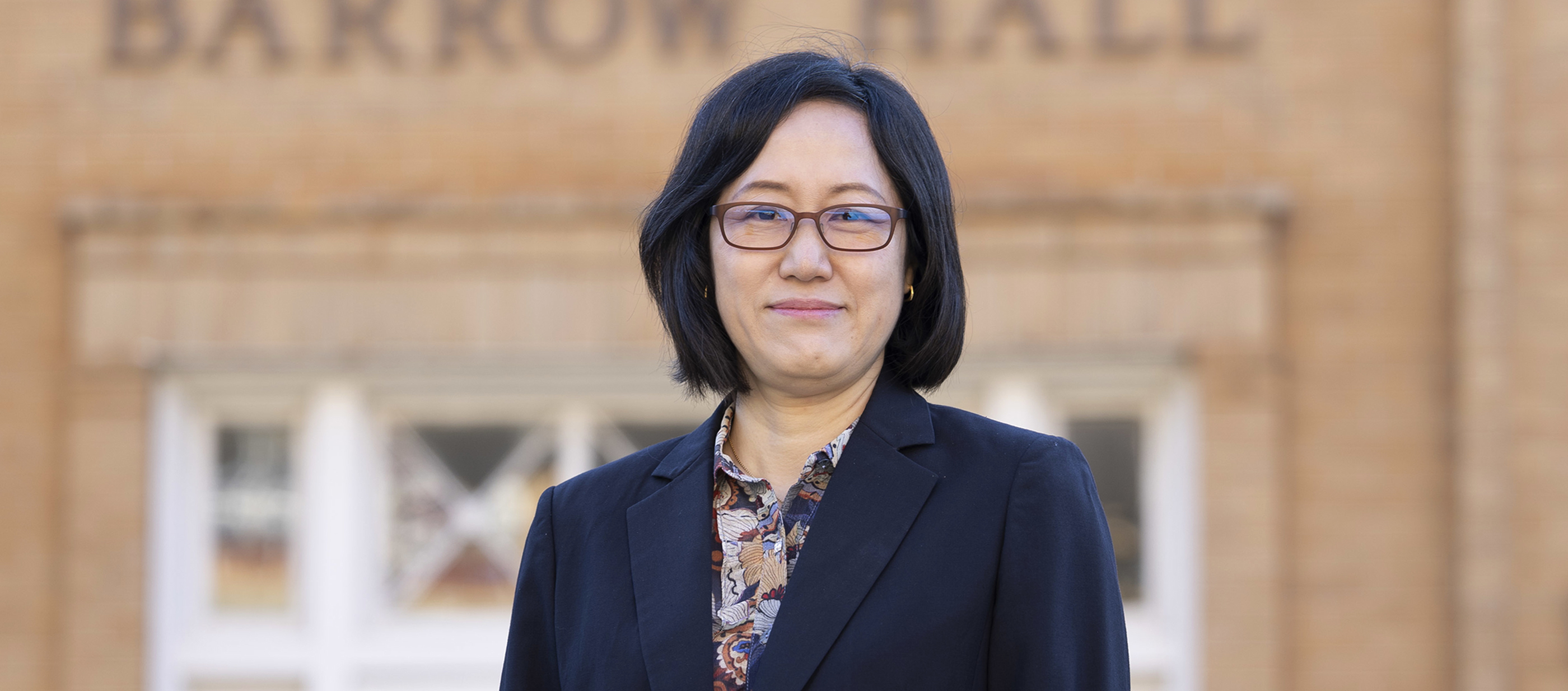
Jung Sun Lee
Nutritional Sciences
Georgia Athletic Association Professor in Family and Consumer Sciences is passionate about ending food insecurity
In the U.S., food insecurity is a complex problem that often goes unseen.
Food might seem like an abundant resource in the States, and we don’t typically see people who look as if they’re starving. But one out of every 10 American households has experienced bouts of food insecurity over the past year, according to the U.S. Department of Agriculture.
Jung Sun Lee, the Georgia Athletic Association Professor in Family and Consumer Sciences within the FACS department of nutritional sciences, is passionate about ensuring people can access the healthful food they need to thrive. Her research focuses on understanding the scope of the food insecurity problem and how to address it.
What first drew you to the field of nutrition sciences?
I became interested in the field of nutritional sciences, especially in community nutrition. I wanted to understand and contribute to how each society could support optimal nutrition for its people to maintain active and healthy lives. Nutrition is critical for health across the lifespan. Malnutrition, either undernutrition or overnutrition, has detrimental and long-lasting developmental, economic, social, and medical impacts on individuals, families, communities, and nations.
Your research focuses on food insecurity and improving the capacity of food nutrition assistance programs. Why are these such important issues to you?
I became passionate about this topic by learning about the experiences of my grandparents and parents with hunger during the Korean War, ongoing severe famine in Africa, and even middle-class older couples eating cat food for lunch in the U.S.—the country with the world’s largest economy and food production. Indeed, food insecurity is a persistent and growing public health problem.
What’s something you wish people knew about the work you do or your field in general?
Food insecurity is a political problem with a political solution. It takes political will to solve it. Food insecurity in America could be eradicated if we increase funding for effective programs, work to eliminate poverty, and invest in all of the people in the nation. I hope my work focusing on food insecurity contributes to promoting awareness of food insecurity and catalyzing collective actions and collaboration among diverse stakeholders to solve food insecurity and poor nutrition issues.
This article appears in the winter 2023 issue of Georgia Magazine. Q&A written by Leigh Beeson. Photo by Andrew Davis Tucker.
